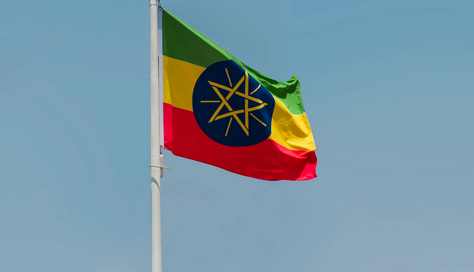In Geopolitics Today: Tuesday, September 10th
Ethiopia Submits Ratified Nile Water Agreement, Western Powers Sanction Iran for Supplying Missiles to Russia, and other stories.
Ethiopia Submits Ratified Nile Water Agreement
Ethiopia has submitted a ratified version of the Nile Basin Initiative's Cooperative Framework Agreement (CFA) to the African Union, following South Sudan's ratification in July. This action meets the threshold for the CFA to enter into force within two months, establishing the Nile River Basin Commission (NRBC).
The CFA's implementation challenges the existing water allocation agreements favouring Egypt and Sudan. These downstream states oppose the CFA, particularly Article 14b, which could alter their current Nile water usage. The NRBC's formation provides a legal basis for upstream countries to develop hydraulic projects, potentially reducing downstream water flow. This may force Egypt and Sudan to reconsider their stance on the CFA to protect their water interests, including negotiations over the Grand Ethiopian Renaissance Dam.
Read more about this story here.
Japan and Australia to Jointly Develop Long-Range Missiles
Japan and Australia have agreed to co-develop long-range missiles, a strategic decision aimed at countering China's expanding military influence in the Indo-Pacific region. This agreement was solidified during a meeting between Japanese Defense Minister Minoru Kihara and his Australian counterpart Richard Marles, reflecting mutual concerns over China's military activities.
This development is a part of the intensifying security competition in Asia. The collaboration between Japan and Australia is indicative of a broader US-led balancing coalition against China, with such alliances often leading to deeper military commitments. This move could potentially involve these nations in conflicts, particularly concerning Taiwan, as they are drawn into the strategic orbit of the United States. The strategic objective is clear: to maintain a balance of power in the region and prevent China from achieving regional hegemony.
Read more about this story here.
Western Powers Sanction Iran for Supplying Missiles to Russia
The US, UK, France, and Germany have sanctioned Iran for supplying ballistic missiles to Russia. The US Treasury targeted 10 individuals, 6 companies, and 4 vessels linked to Iran's defence sector and weapons delivery. European powers cancelled air agreements with Iran, with the UK ending all direct flights.
Iran's provision of Fath-360 missiles, with a 120 km range, to Russia marks a significant short-term boost to its strike capabilities in Ukraine. US officials claim Russian personnel have trained on these systems in Iran, expecting deployment within weeks. This expands Iran's role from supplying drones to more potent weaponry, potentially shifting battlefield dynamics in Moscow’s favour. The sanctions highlight Iran's deepening military ties with Russia, despite continued Western pressure. Tehran's defiance of these measures underscores the limits of Western leverage and may accelerate Iran's strategic alignment with Russia and China.
Read more about this story here.
UAE and India Deepen Partnership with Energy and Nuclear Agreements
The United Arab Emirates and India have strengthened their strategic partnership by signing five key agreements, focusing on energy cooperation and nuclear power development. During Abu Dhabi Crown Prince Sheikh Khaled bin Mohamed bin Zayed Al Nahyan's visit to New Delhi, the countries inked deals covering nuclear energy expertise exchange, LNG supply, oil storage, and agricultural development.
The UAE-India agreements include ADNOC supplying 1 million metric tons of LNG annually to Indian Oil Corporation for 15 years, enhancing India's energy security. Both nations will also share nuclear plant expertise, focusing on the UAE's Barakah facility. These deals, part of the broader UAE-India Comprehensive Economic Partnership Agreement, signal stronger bilateral ties as they aim for $100 billion in non-oil trade by 2030. This partnership is particularly significant as it positions India as a key player in Middle Eastern geopolitics, leveraging its growing economic power to secure vital energy resources.
Read more about this story here.
Aral Sea Shrinkage Strains Uzbek-Kazakh Economic Strategies
The Aral Sea's 90% reduction has forced Uzbekistan and Kazakhstan to reassess their economic approaches in the affected regions. Uzbekistan is promoting tourism and planting saxaul to combat desertification, while Kazakhstan built the Kok-Aral Dam to revive its northern fishing industry. These efforts have not fully offset the loss of traditional livelihoods in fishing and agriculture.
The crisis impacts water management policies between the two countries, as both grapple with reduced resources from the Amu Darya and Syrdarya rivers. This scarcity could potentially lead to disagreements over water allocation. The environmental damage has broader economic implications: dust storms from the exposed seabed damage crops in surrounding areas, while climate changes attributed to the sea's shrinkage affect agricultural productivity. International organizations like the World Bank have supported some mitigation projects, but the scale of the challenge continues to strain both countries' resources and regional cooperation efforts.
Read more about this story here.
Russia and China Expand Arctic Cooperation with New Route
Russia and China have launched the “Arctic Express No. 1” freight train route, connecting Moscow to Shanghai via Arkhangelsk as part of their “Ice Silk Road” initiative. This new route aims to reduce cargo delivery time from Moscow to Chinese ports by up to 55 percent, with an annual capacity of over 20,000 TEUs. The project reflects growing Sino-Russian cooperation in Arctic development, complementing China's Belt and Road Initiative.
Rosatom, Russia's nuclear energy monopoly and Northern Sea Route (NSR) operator, plans to extend the NSR from St. Petersburg and Kaliningrad to Vladivostok, adding 8,000 nautical miles to the route. This expansion could increase the NSR's vulnerability near NATO coastal states. While the new routes offer alternatives to traditional maritime paths, Russia faces challenges in upgrading infrastructure to handle increased traffic, particularly amid sanctions and domestic shipbuilding industry issues. The deepening Arctic cooperation between Moscow and Beijing raises strategic concerns for Western powers, especially those with direct interests in the Arctic.



